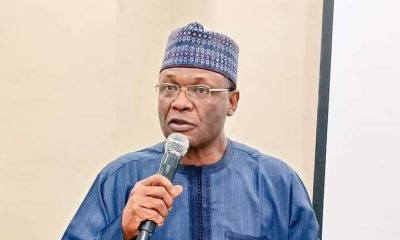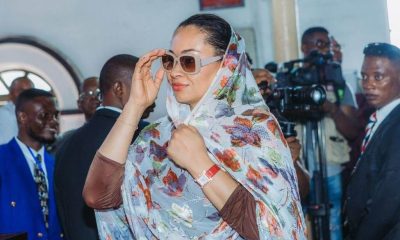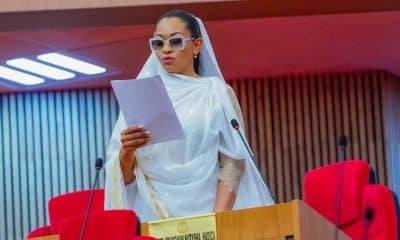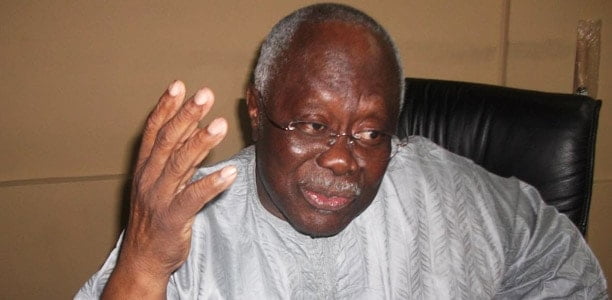Politics
How To Prevent Electoral Shambles In Nigeria, Insights From Prof Attahiru Jega
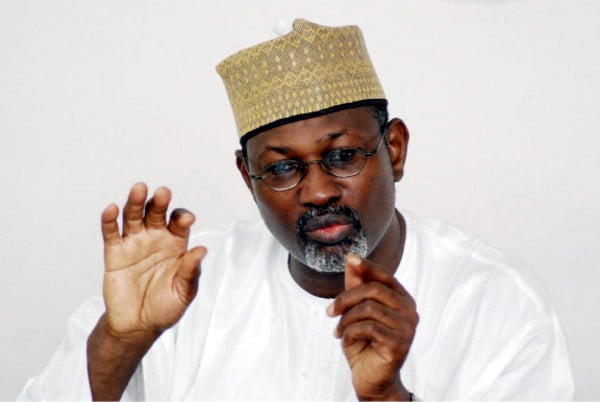
Former National Chairman of the Independent National Electoral Commission, INEC, Professor Attahiru Muhammadu Jega, emerged as a figure worthy of admiration in the intricate dance of Nigeria’s electoral landscape.
Recently, Professor Jega presented his insights on electoral reforms during a Senate Retreat, emphasizing the need for a pragmatic approach over sensationalism in media coverage. His reflections, a beacon of hope for a nation besieged by political turmoil, delve into the core issues plaguing Nigeria’s democratic evolution.
The electoral journey of Nigeria, spanning 24 years, stands hampered by formidable challenges, notably the deficient quality of representation, compromised electoral integrity, and governance failures in addressing citizens’ fundamental needs. Jega contended that rectifying these persistent issues necessitates a continuous and concerted effort to reform the electoral process, enhancing its integrity and aligning it with the requirements for democratic development and consolidation.
Jega’s presentation centred on the comprehensive assessment of the 2022 Electoral Act, recognizing its historical importance as Nigeria’s most robust legal framework for elections; he emphasized the critical need for prompt amendments to address ambiguities, complexities, and shortcomings revealed during the 2023 general elections, aiming to improve preparations and conduct for the 2027 general elections.
The context of the Electoral Act’s evolution is scrutinized, tracing its legislative journey since 2002. Jega urges a return to the commendable practice of legislative reforms preceding elections, emphasizing the obligation of the National Assembly to uphold this standard in adherence to regional protocols.
The Electoral Act of 2022, with its 153 sections meticulously organized, introduces commendable enhancements. It seeks to fortify internal democracy, combat electoral offences, facilitate inclusion of people with disabilities, endorse the use of technology, and safeguard INEC’s independence. Jega expounded on specific provisions, illustrating how they contribute to the Act’s landmark status.
However, recognizing the imperfection of the Electoral Act 2022, Jega offers insightful recommendations for improvement. He advocated for clarity in technology usage, mandatory electronic result transmission, and stringent conditions for candidate withdrawal. Additionally, he proposes measures to enhance voting rights, inclusivity, and better regulation of political parties.
Beyond the Electoral Act, Jega delves into broader issues such as the institutional independence of INEC, vote buying, delimitation, proliferation, and registration of parties. He called for the unbundling of INEC to enhance efficiency and recommended the creation of specialized bodies for handling electoral offences, boundary delimitation, and party monitoring.
In concluding remarks, Jega emphasized a multifaceted approach to electoral reforms. While the periodic review of the Electoral Act remains pivotal, he underscores the need for systemic changes in policing, security, voter education, and politician reorientation. For consolidated democratic development in Nigeria, Jega advocates a holistic reform agenda that addresses attitudinal, policy, and structural challenges.

